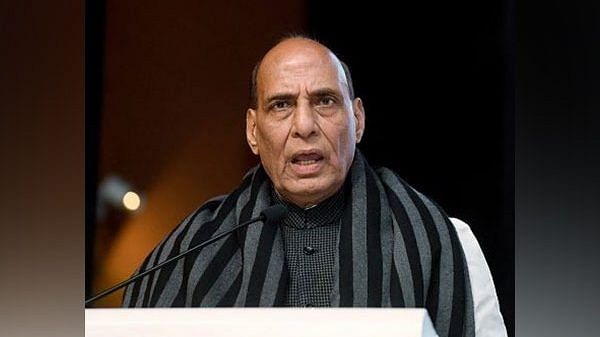India and China, sans fanfare, met on a Sunday to hold the 18th round of Corps Commander level negotiations. The talks were conducted in an unusually silent manner, with no prior announcements, and also that the two sides could not even be bothered to issue a joint statement. Or that it was not possible to arrive at a joint statement. Both are reasonable assumptions given that well nigh three years after the bloody clashes in Ladakh the two sides have yet to return to positions held before April 2020, geographic as well as linguistic. Goalposts have since shifted dramatically, maybe irrevocably.
Given that India’s Defence Minister Rajnath Singh is to meet his Chinese counterpart Gen Li Shangfu on 27 April, the Sunday talks may well have been pushed through to keep the diplomatic environment conducive. Since the Shanghai Cooperation Organisation defence ministers are then meeting on 28 April, it would be a major embarrassment had the Ladakh talks turned hostile. That would have cast a shadow over the widely anticipated event. Which is what the efforts to resolve the Ladakh stand-off have now really become, a routine event. The text of the official briefings truly reflects the repetitive nature of things.
While the Indian statement continued from where it had left off the last time, “In line with the guidance provided by the State leaders and further to the meeting between the two foreign ministers in March 2023, they had an exchange of views in an open and candid manner”, the Chinese had an additional line that stood out, “Speed up the settlement of relevant issues on the western section of the China-India boundary”.
Also read: US spying leads China to drastically change espionage law. It means more control on citizens
On different page and pace
A clue to this speedy settlement lies in an article in Global Times, widely regarded as the English language mouthpiece of the Chinese Communist Party, and a sounding board as well.
On the talks at Chushul-Moldo Border Meeting Point, Global Times wrote, “China and India held the 18th round of corps commander level meeting on Sunday, a move Chinese experts said on Monday showed that the border issue is shifting from a standoff to normalised management”. When one side is convinced that normalised management has been arrived at, then it naturally has expectations of reaching a speedy settlement. Especially given that the extended negotiations have repeatedly resulted in disengagement agreements that have tended to favour the Chinese position. India has conceded patrolling rights over lands that has negatively affected civilian life.
The concessions have, unfortunately, extended to military positions as well for since April 2020 the tale has been that of territorial concessions. The accumulated losses are now estimated to be almost 1000sq km. For the sake of ‘peace and tranquility’ on the border, India has conceded tactically important positions as well, which was evident over the disengagement in Kailash Range. All eyes are now on the extremely critical Depsang and Demchok areas where no breakthroughs have been achieved. But any concessions here would be akin to a colossal military debacle. Clearly, negotiating lessons from history have not been absorbed.
Also read: Poonch ambush had unmistakable Pakistani hand. But here’s why Indian govt is downplaying it
Diplomacy and strength
“We can never succeed in promoting our ideals or our interests if we ignore one central truth: Strength and diplomacy go hand-in-hand…Negotiations are a euphemism for capitulation if the shadow of power is not cast across the bargaining table.” Thus spoke then US Secretary of State George Shultz at the famous Kansas State University lecture in 1986, and which has come to be recounted innumerable times in the world of diplomacy. A firm believer in negotiations, with ample riders, Shultz is credited with helping create an environment that ultimately wound down the Cold War.
He further elaborated this thesis.
A decade later he wrote, “The interplay between strength and diplomacy is essential. Diplomacy without strength — military and economic — is fruitless; but strength without diplomacy is unsustainable, particularly in the modern era…Strength and diplomacy have always gone together and still do.” India has obviously lacked in that vitally important ingredient to this modern day formula for negotiations. For while its diplomatic space has not suffered, its military expanse, the ability to manoeuvre over terrain long held sacrosanct, has seriously shrunk. Clearly there has been insufficient presence of power from India side at the bargaining table for the delegations.
The net result, according to a presentation paper at DGP’s conference made by D Nitya, IPS and Ladakh SP, is that “Out of 65 PPs (patrolling points), our presence is lost in 26 PPs due to restrictive or no patrolling by the ISFs (Indian security forces)…China forces us to accept the fact that, as such areas have not seen the presence of ISFs or civilians since long, the Chinese were present in these areas…and a “buffer zone” is created in all such pockets which ultimately leads to the loss of control over these areas by India… Since 2014, enhanced restrictions on the grazing movement and areas have been imposed.”
Hardly surprising these recordings are now missing!
Manvendra Singh is a Congress leader, Editor-in-Chief of Defence & Security Alert and Chairman, Soldier Welfare Advisory Committee, Rajasthan. He tweets @ManvendraJasol. Views are personal.
(Edited by Anurag Chaubey)



